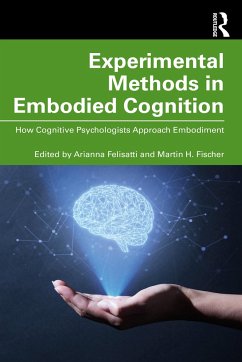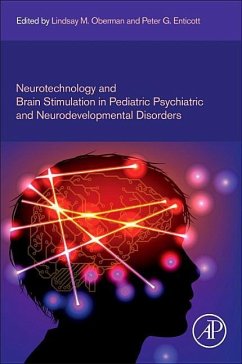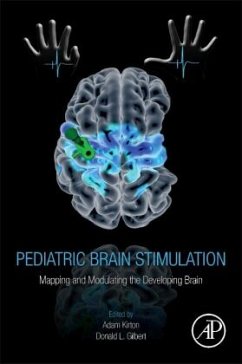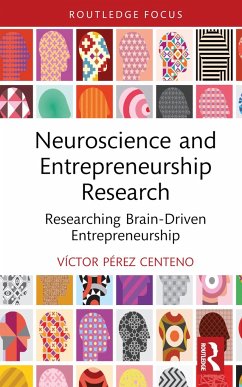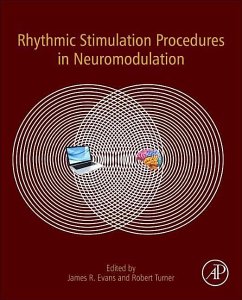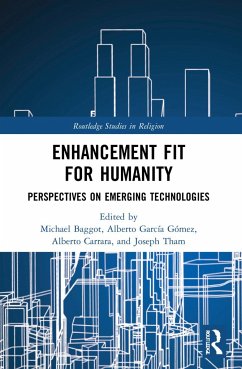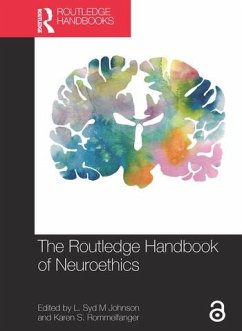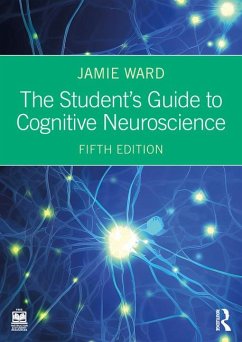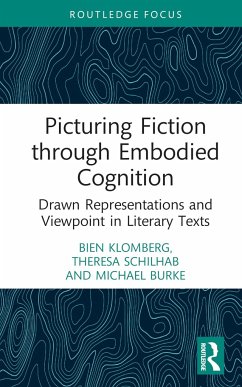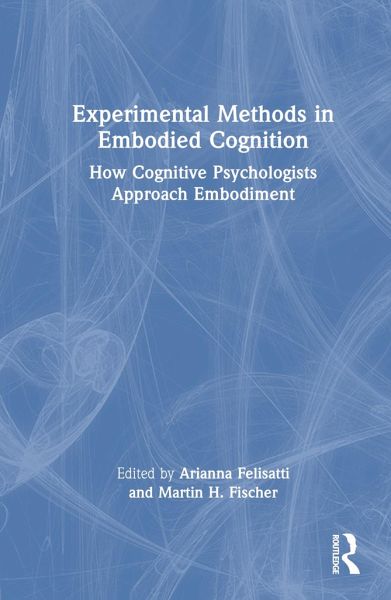
Experimental Methods in Embodied Cognition
How Cognitive Psychologists Approach Embodiment
Herausgegeben: Felisatti, Arianna; Fischer, Martin H.
Versandkostenfrei!
Versandfertig in 6-10 Tagen
154,99 €
inkl. MwSt.
Weitere Ausgaben:

PAYBACK Punkte
77 °P sammeln!
Experimental Methods in Embodied Cognition presents a timely introduction to methodologies of cognitive science from a theoretical perspective.Embodied approaches to cognition are becoming increasingly prevalent in teaching and research globally, but until now a comprehensive book combining theoretical principles and practical methods for embodied cognition has been missing. Embracing this theoretical principle, the book introduces and compares different psychological methods from theoretical, technical, and methodological points of view. Informed by the direct experiences of a specialised gro...
Experimental Methods in Embodied Cognition presents a timely introduction to methodologies of cognitive science from a theoretical perspective.
Embodied approaches to cognition are becoming increasingly prevalent in teaching and research globally, but until now a comprehensive book combining theoretical principles and practical methods for embodied cognition has been missing. Embracing this theoretical principle, the book introduces and compares different psychological methods from theoretical, technical, and methodological points of view. Informed by the direct experiences of a specialised group of authors, the text also offers a taxonomy of methods, including technical hands-on descriptions to support student learning. Each chapter includes suggestions for their use, enabling readers to compare methodologies and to find the most suitable approach for their specific research questions. Finally, the book also addresses the effects of different cultural immersions and learning experiences, offering an overview of other, non-psychological approaches to embodied cognition research, including comparative research with animals and humanoid robots.
This is an essential read for students and researchers of embodied cognition across various fields, ranging from psychology and cognitive neuroscience to philosophy, linguistics, economics, and sport science.
Embodied approaches to cognition are becoming increasingly prevalent in teaching and research globally, but until now a comprehensive book combining theoretical principles and practical methods for embodied cognition has been missing. Embracing this theoretical principle, the book introduces and compares different psychological methods from theoretical, technical, and methodological points of view. Informed by the direct experiences of a specialised group of authors, the text also offers a taxonomy of methods, including technical hands-on descriptions to support student learning. Each chapter includes suggestions for their use, enabling readers to compare methodologies and to find the most suitable approach for their specific research questions. Finally, the book also addresses the effects of different cultural immersions and learning experiences, offering an overview of other, non-psychological approaches to embodied cognition research, including comparative research with animals and humanoid robots.
This is an essential read for students and researchers of embodied cognition across various fields, ranging from psychology and cognitive neuroscience to philosophy, linguistics, economics, and sport science.





